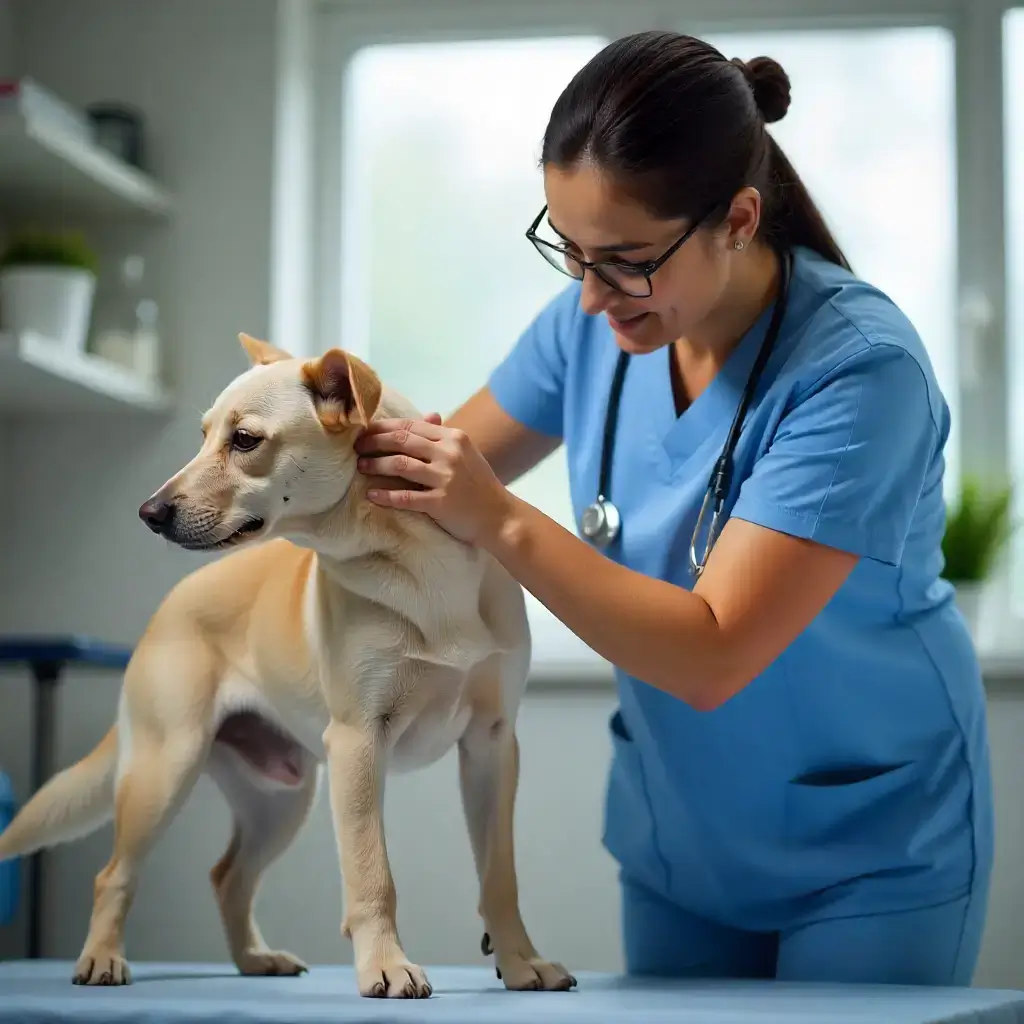Dogs are naturally active and playful creatures, but over time, joint problems can affect their mobility, comfort, and happiness. Understanding canine joint health is crucial for every pet owner who wants to ensure their dog stays healthy, energetic, and pain-free throughout life.
What Is Canine Joint Health?
Canine joint health refers to the condition and proper functioning of a dog’s joints — the points where two bones meet, such as the hips, knees, and elbows. Healthy joints allow smooth and painless movement, while unhealthy ones can cause stiffness, inflammation, and discomfort.
Why Joint Health Matters for Dogs
Strong joints are essential for every physical activity your dog enjoys — running, jumping, and even standing up. Without healthy joints, a dog’s quality of life significantly decreases, and untreated joint problems can lead to chronic pain or even disability.
Common Joint Problems in Dogs
There are several types of joint issues that dogs may experience depending on their breed, age, and activity level.
1. Osteoarthritis
This is one of the most common joint diseases in dogs. It’s a degenerative condition where the cartilage that cushions the joints wears away over time, leading to pain and stiffness.
2. Hip Dysplasia
A genetic condition often seen in large dog breeds, hip dysplasia occurs when the hip joint doesn’t fit properly into the socket, causing instability and long-term arthritis.
3. Elbow Dysplasia
Similar to hip dysplasia, elbow dysplasia is an abnormal development of the elbow joint that can lead to pain and lameness in the front legs.
4. Luxating Patella
Common in smaller breeds, this happens when the kneecap (patella) slips out of place, causing limping or skipping steps.
Causes of Joint Issues in Dogs

Age
As dogs age, their joints naturally wear down, leading to decreased flexibility and lubrication.
Genetics
Some breeds, like German Shepherds, Labradors, and Golden Retrievers, are genetically prone to joint issues.
Obesity
Extra weight puts excessive pressure on the joints, accelerating wear and tear.
Injury and Overexertion
Repetitive strain or trauma can cause lasting damage to joint cartilage.
Poor Nutrition
A lack of essential nutrients, like omega-3 fatty acids and glucosamine, can contribute to weak joints and slower recovery.
Signs of Joint Problems in Dogs
Behavioral and Physical Symptoms
- Reluctance to jump, climb stairs, or run
- Limping or stiffness after rest
- Swelling or heat around the joints
- Whining or yelping when touched
- Reduced activity or energy
- Licking or biting affected joints
If you notice any of these signs, it’s essential to consult your veterinarian for a proper diagnosis and treatment plan.
How to Maintain Healthy Joints in Dogs
1. Provide Proper Nutrition
A balanced diet rich in omega-3 fatty acids, antioxidants, and joint-supporting nutrients can help prevent inflammation and protect cartilage.
Recommended Nutrients for Joint Health
- Glucosamine: Helps rebuild cartilage and reduce inflammation.
- Chondroitin: Works with glucosamine to maintain joint elasticity.
- Omega-3 Fatty Acids: Found in fish oil, they reduce joint inflammation.
- Vitamin C & E: Powerful antioxidants that protect joint tissue.
🐾 Related Articles You May Like
- Understanding and Treating Heartworm
- How to Keep Your Dog Safe During Holidays
- How to Handle a Dog with Special Needs
2. Maintain a Healthy Weight
Keeping your dog’s weight in check significantly reduces joint stress. Regular exercise and a controlled diet are key.
Tips for Weight Management
- Avoid overfeeding and limit treats.
- Choose high-quality dog food with balanced protein and fiber.
- Schedule daily walks and moderate playtime.
3. Regular Exercise and Activity
Exercise keeps muscles strong and joints flexible, but it should be balanced.
Ideal Activities for Joint Health
- Swimming: Low-impact and easy on the joints.
- Short walks: Regular but not overly strenuous.
- Controlled play sessions: Avoid excessive jumping or rough play.
4. Supplements for Joint Support
Joint supplements can make a big difference, especially for aging dogs.
Common Natural Supplements
- Glucosamine & Chondroitin: Support cartilage repair.
- MSM (Methylsulfonylmethane): Reduces inflammation and pain.
- Turmeric (Curcumin): A natural anti-inflammatory compound.
- Green-Lipped Mussel: Rich in omega-3 and glycosaminoglycans.
Veterinary Treatments and Therapies
1. Medications
Your vet may prescribe anti-inflammatory drugs (NSAIDs) to reduce pain and swelling.
2. Physical Therapy
Hydrotherapy, massage, and stretching exercises can strengthen muscles and improve joint mobility.
3. Surgery
In severe cases, surgical options like hip replacement or arthroscopy may be necessary to restore function.
Home Care Tips for Dogs with Joint Problems
Create a Comfortable Environment
- Provide orthopedic dog beds.
- Keep the house warm and avoid slippery floors.
- Use ramps or steps for easy access to cars or sofas.
Gentle Massage and Warm Compress
Massaging sore joints and applying a warm compress can soothe stiffness and improve blood flow.
Preventing Joint Problems Before They Start
Start Early
Puppies benefit from joint support just as much as older dogs. Early nutrition and proper exercise help build strong bones and joints.
Regular Vet Checkups
Annual checkups can help detect early signs of joint wear and prevent serious issues later.
Conclusion
Taking care of your dog’s joint health is one of the most important aspects of responsible pet ownership. By providing a balanced diet, proper exercise, and early prevention, you can ensure your dog stays active and pain-free throughout their life.
Remember, healthy joints mean a happier, longer life for your furry companion.
📌 Follow Us for More Pet Tips!
Stay updated with the latest dog care guides, natural remedies, and expert advice by following us on Pinterest and Facebook. Join our community of pet lovers today! 🐶❤️


